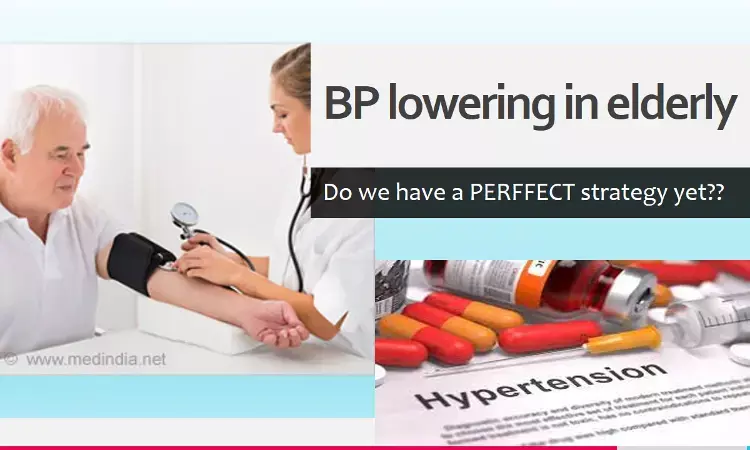- Home
- Medical news & Guidelines
- Anesthesiology
- Cardiology and CTVS
- Critical Care
- Dentistry
- Dermatology
- Diabetes and Endocrinology
- ENT
- Gastroenterology
- Medicine
- Nephrology
- Neurology
- Obstretics-Gynaecology
- Oncology
- Ophthalmology
- Orthopaedics
- Pediatrics-Neonatology
- Psychiatry
- Pulmonology
- Radiology
- Surgery
- Urology
- Laboratory Medicine
- Diet
- Nursing
- Paramedical
- Physiotherapy
- Health news
- Fact Check
- Bone Health Fact Check
- Brain Health Fact Check
- Cancer Related Fact Check
- Child Care Fact Check
- Dental and oral health fact check
- Diabetes and metabolic health fact check
- Diet and Nutrition Fact Check
- Eye and ENT Care Fact Check
- Fitness fact check
- Gut health fact check
- Heart health fact check
- Kidney health fact check
- Medical education fact check
- Men's health fact check
- Respiratory fact check
- Skin and hair care fact check
- Vaccine and Immunization fact check
- Women's health fact check
- AYUSH
- State News
- Andaman and Nicobar Islands
- Andhra Pradesh
- Arunachal Pradesh
- Assam
- Bihar
- Chandigarh
- Chattisgarh
- Dadra and Nagar Haveli
- Daman and Diu
- Delhi
- Goa
- Gujarat
- Haryana
- Himachal Pradesh
- Jammu & Kashmir
- Jharkhand
- Karnataka
- Kerala
- Ladakh
- Lakshadweep
- Madhya Pradesh
- Maharashtra
- Manipur
- Meghalaya
- Mizoram
- Nagaland
- Odisha
- Puducherry
- Punjab
- Rajasthan
- Sikkim
- Tamil Nadu
- Telangana
- Tripura
- Uttar Pradesh
- Uttrakhand
- West Bengal
- Medical Education
- Industry
Hypertension in elderly: Maximizing single drug is more sustainable than adding new drugs, finds study.

The SPRINT trial and others have endorsed the intensification of medications in hypertensive adults. In an observational study on veterans aged 65 years or older with hypertension, Aubert et al have found that the simpler regimen of maxing out the original drug's dose is more sustainable than adding a second drug when intensifying the treatment of hypertension. The results were published online this week in the Annals of Internal Medicine.
Guidelines differ on preferred approaches to achieve target BP levels—the latest European advice supports two or more medications working in combination, while US documents do not promote a specific tactic except for patients deemed high risk.
The aim of the current study was to assess the frequency of intensification by adding a new medication versus maximizing dose, as well as the association of each method with intensification sustainability and follow-up systolic blood pressure (SBP). A total of 178,562 patients at least 65 years old (mean age 75.8 years; 98.1% men) with hypertension and a systolic blood pressure of at least 130 mm Hg were analysed. All were taking at least one antihypertensive at a lower than maximum dose. The mean number of drugs at baseline was two.
In 25.5% of patients, intensification of therapy was achieved by adding a new medication. In the remaining 74.5% of patients, this was done by maximizing the dose without the addition of a new drug.
Over 3 months, patients whose existing dosage was increased were more likely to have maintained or improved upon their overall level of antihypertensive-therapy intensity than those who had a new drug added (65.0% vs 49.8%). This relationship was maintained after adjusting for baseline systolic BP and total number of medications; the difference was sustained at 12 months.
On the other hand, adding a new medication was associated with a greater decrease in systolic blood pressure at 3 months as compared with maximizing the dose (-4.6 vs -3.8 mm Hg). This improvement was still present at 12 months, with a difference of -1.1 mm Hg between the two strategies. Younger patients and those with higher baseline systolic blood pressure were more likely to have had a new medication added.
In an accompanying editorial, Olivier Steichen, MD, PhD writes that "the main shortcoming of the study lies in the broad spectrum of baseline situations." The heterogeneous case mix included here doesn't allow for "definitive conclusions on how best to intensify treatment in patients with uncontrolled hypertension, in general or in any given situation," he adds.
However, the findings lend some clinical support to physicians prescribing antihypertensives and encourage them to keep things simple, Steichen says. "When intensification is indicated, we should not waste time with elaborate reasoning: Either add a drug or maximize the dose of existing drugs, whichever seems to fit best with the patient's current treatment, clinical state, and preferences."
To summarize, adding a new antihypertensive medication was less frequent and was associated with less intensification sustainability but slightly larger (approximately 1mmHg lower) reductions in SBP.
Source: Annals of Internal Medicine: 1. https://doi.org/10.7326/M21-1456
2. https://doi.org/10.7326/M21-3648
MBBS, MD , DM Cardiology
Dr Abhimanyu Uppal completed his M. B. B. S and M. D. in internal medicine from the SMS Medical College in Jaipur. He got selected for D. M. Cardiology course in the prestigious G. B. Pant Institute, New Delhi in 2017. After completing his D. M. Degree he continues to work as Post DM senior resident in G. B. pant hospital. He is actively involved in various research activities of the department and has assisted and performed a multitude of cardiac procedures under the guidance of esteemed faculty of this Institute. He can be contacted at editorial@medicaldialogues.in.
Dr Kamal Kant Kohli-MBBS, DTCD- a chest specialist with more than 30 years of practice and a flair for writing clinical articles, Dr Kamal Kant Kohli joined Medical Dialogues as a Chief Editor of Medical News. Besides writing articles, as an editor, he proofreads and verifies all the medical content published on Medical Dialogues including those coming from journals, studies,medical conferences,guidelines etc. Email: drkohli@medicaldialogues.in. Contact no. 011-43720751


